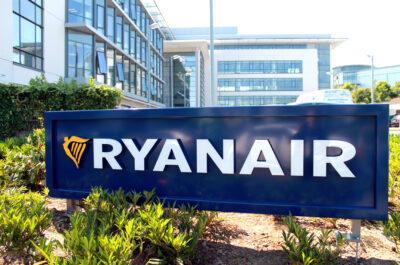What will 2016 have in store for the travel technology community?
If 2015 was any example of how the market is changing both technologically, operationally as well as philosophically, then 2016 should be an incredibly interesting year. Here are some thoughts regarding the year ahead.
Consolidation
Massive consolidation in the travel industry which began in 2014 accelerated to a fevered pace in 2015. Sabre Hospitality acquired Trust International, TripAdvisor looked towards the tour space by acquiring Viator. Expedia tried its best to buy almost everything that affected online bookings with the acquisitions of Orbitz and HomeAway and if given the opportunity, there is the possibility that they would have purchased even more. Marriott purchased Starwood and Accor, focused on developing their own digital strategy purchased Fastbooking. All of this provides a glimpse into the crystal ball regarding what we should expect for 2016.
The Travel Supply Chain
Tier-one Online Travel Agencies (OTA’s) will continue to “verticalize” up and down the supply chain as the lines continue to blur on the distribution front. Expedia, PCLN and TRIP now all possess MetaSearch, OTA and hotel “direct” channels. In 2016 we will see the industry focus shift to alternative revenue sources from their old reliable revenue streams such as bookings and advertising: think table reservations, activities and vacation rentals. While some of these ancillary revenue opportunities already exist, you will see an intelligent, integrated offering to deliver a better consumer experience that ultimately drives more revenues. Travelers are NOT currently thinking about their dinner reservations while they are booking their hotel or airfare however in a holistic travel sales environment, we will see the convergence of all trip elements and the big players will own the customer through the entire trip process.
The Hotel Industry
Similarly, large hotel chains are looking for opportunities to get closer to their customers along the decision and booking path (remember they get little to no details when a booking occurs at an OTA). While ADR’s continue to be at all time highs yielding impressive numbers on the bottom line, hotels continue to see a decline in direct bookings. Pressure from Airbnb, HomeAway and other alternative lodging sites are scaring the hotel industry and this growth of this new channel of inventory is expected to continue. Consolidation and the challenges of integration for the top OTA players should afford the leading hotels & boutique hotels an opportunity to differentiate with unique and authentic experiences while travelers are in destination: mobile concierge, self-check-in, keyless rooms, smart/eco guest experience and integrated activities.
Alternative Lodging
Both supplier and agent are now squarely focused on the threat Airbnb poses (Airbnb sells more “nights” than any of the global hotel chains). OTA’s have quickly moved into the vacation rental sector, eg. Expedia acquiring HomeAway. Look for vacation rentals and peer-to-peer marketplace start collaborating with traditional hotel distribution channels and make strong penetration into the business travel sector. There is a new business/leisure sector emerging called BLeisure that combines both business travel and leisure travel whereby short leisure trips can be attached at the beginning or end of business travel. The best way facilitate these trips is to use alternative lodging because of its flexibility. Corporate travel beware as this will become a new wave of employee travel interaction.
Personalization
Personalization will remain top of mind in 2016. This is however an elusive target. Where does delivering personalized service or offerings start to become invasive. Companies that deliver personalized solutions to the travel industry will have to tread carefully to ensure that they do not become too intrusive. Most larger travel technology companies are looking at personalization as the next evolution in communication between the traveler and the hotel, airline or destination. The companies with the most data will ultimately have the best chance at delivering personalized service.
The Big Players
Google, SAP, Oracle and Adobe are all spending to gain market share in the 3+ Billion USD industry in 2016. Pay close attention to Google who recently stepped into the hotel direct booking business even though at PhoCusWright 2015 they stated that they are not in the direct booking business. Some of the larger ERP companies such as Oracle and SAP all have travel and hospitality division and they now have seen the light that there is real money to be made in this industry. Expect big things from these companies.
 Greg Abbott is a Partner at DataArt, leading the Travel & Hospitality Practice which he formed in 2010. Greg has deep experience in executive sales & travel system operations, with 20+ years in domestic and international online travel industry sector, including entrepreneurship, management, product development, and consulting. His career in travel began in the early ’90’s while attending the University of California at Berkeley and working at the corporate campus travel agency which was later acquired by STA Travel. Over his decade with STA Travel, Greg rose to the Director position and later departed to join NEXGEN Travel in Munich, Germany’s leading online travel startup, assuming the role of Product Director for nearly four years. While at NEXGEN, his team tackled some of the most unique system and technology challenges in the hospitality & tour operator distribution landscape. On his return to the U.S., Greg joined DataArt as SVP of Travel & Hospitality to lead the charge in building out DataArt’s service to leading travel technology companies around the globe. He’s a frequent speaker and a thought leader, with a loyal following in the press and social media alike.
Greg Abbott is a Partner at DataArt, leading the Travel & Hospitality Practice which he formed in 2010. Greg has deep experience in executive sales & travel system operations, with 20+ years in domestic and international online travel industry sector, including entrepreneurship, management, product development, and consulting. His career in travel began in the early ’90’s while attending the University of California at Berkeley and working at the corporate campus travel agency which was later acquired by STA Travel. Over his decade with STA Travel, Greg rose to the Director position and later departed to join NEXGEN Travel in Munich, Germany’s leading online travel startup, assuming the role of Product Director for nearly four years. While at NEXGEN, his team tackled some of the most unique system and technology challenges in the hospitality & tour operator distribution landscape. On his return to the U.S., Greg joined DataArt as SVP of Travel & Hospitality to lead the charge in building out DataArt’s service to leading travel technology companies around the globe. He’s a frequent speaker and a thought leader, with a loyal following in the press and social media alike.































































































































































































